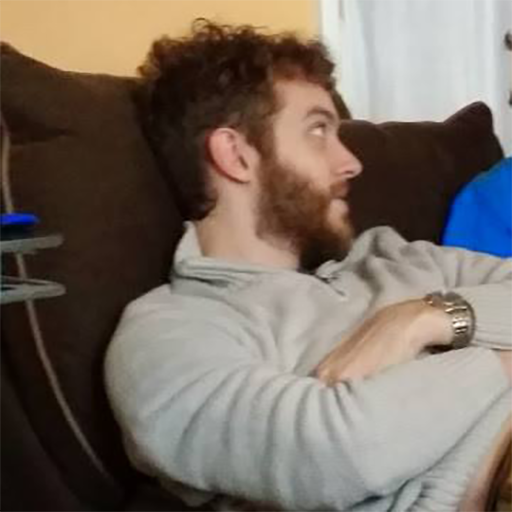An example of what I mean:
I, in China, told an English speaking Chinese friend I needed to stop off in the bathroom to “take a shit.”
He looked appalled and after I asked why he had that look, he asked what I was going to do with someone’s shit.
I had not laughed so hard in a while, and it totally makes sense.
I explained it was an expression for pooping, and he comes back with, “wouldn’t that be giving a shit?”
I then got to explain that to give a shit means you care and I realized how fucked some of our expressions are.
What misunderstandings made you laugh?
Not my story, but one a friend told me.
Someone had the misconception that there was a huge, huge sector of labor dedicated to working in cemeteries in the USA. Like almost everyone knew at least one person who worked at a cemetery. This misconception arose due to the ubiquity of the term “graveyard shift” regardless of the actual job being performed.
What is a graveyard shift?
It typically refers to any job where you’re working overnight, like from midnight to 8AM.
When your scheduled working hours is during the nighttime, 12am - 5 am or so
I can’t think of one off hand, but yours (E: and several of the replies) made me lol, thanks 😂
Glad to hear!
Our Austrian exchange student told us “My sister wants to be a wet”.
The v sound is hard for German speakers
No it isn’t, they use it all the time - “wenn, was, wo” all read as “v”. The “double u” sound is the thing that trips them up - it’s common in slavic languages, not so much in germanic ones. For slavic the polish ł or russian “lambda” symbol sound like the “w” in wet. Could also be the accent, but I would wager it was more wires being crossed and saying “wet”, instead of a problem with pronounciation
it was probably written in a text
Yeah, could also be that, but OP said “told us”. Which means they used “w”. Unless the sister made a mistake too. But then again, why would she say that in english. Vet in german is “Tierarzt” which isn’t close to the english “veterinarian”.
I’m just saying I’ve seen plenty germans text that misspelling. “are we going to the wet tomorrow?” would be a classic misspelling of a German writing English
That’s true, but I come across a lot of German speakers and I can attest that they seem to find it difficult when speaking English. Or they mix it up a lot anyway. I do it myself fairly often in Dutch with V and F.
He looked appalled and after I asked why he had that look, he asked what I was going to do with someone’s shit.
This is the shit.
No shit.
Are you shitting me?
I wouldn’t shit you. You’re my favorite turd.
A student was telling me about their pet dog, but it sounded like “duck.” I kept asking questions like, “how did you get a duck? Your parents bought you a duck?” They couldn’t tell the difference between what I was saying either. They showed me a picture and that cleared right up.
I, an English speaker, was interacting with a Spanish patient at work. It was me first week, and it had been a long while since I had spoken Spanish but I had been nearly fluent for years. The patient had neck pain. I walked in and very confidently asked “Donde esta el dolor en su culo?” They looked shocked, turned red and said, “OH NO!” and I immediately realized I asked them “Where is the pain in your asshole?” confusing culo (asshole) with cuello (neck). I apologized profusely and they couldn’t stop laughing about it during the whole appointment. Good times.
We visited an office, and the person guiding us around told us about one of the employees that “it is his first day” - we all misheard this as “it is his birthday”. And started to sing…
A friend of mine was doing work-study in France and thought she was offering to show her coworkers her cat. Thankfully her coworkers informed her that she was being more than just friendly and how to actually offer to show her feline.
Strange how in polite French society, there are no female cats. Similar to rabbits in Spain…
Is the difference here like chat and chatte? I’m not familiar with the French word for female genitalia.
Nor dogs in America
The other day there was a girl on the train responding to the conductor saying “Nächster Halt, Itzehoe” (next stop, Itzehoe), which sounds exactly like “It’s a hoe”. She went “It’s a what!?” with her companion cracking up immediately.
I’ve never had that sort of thing while personally interacting with people who speak other languages. However, when deployed I used to hear people speaking other languages regularly. So it wasn’t that they were communicating directly with me, but I used to love overhearing what they were saying and “bad translating” it to english. And that was hilarious.
This happens within English too… I’m a climate scientist, and I was working in consulting talking to some financial risk people. They were asking us for a “conservative” risk figures. In climate science that would naturally mean a low warming projection. For them it meant being conservative in their appetite for risk, so actually more like a worst-case example. That one took a couple of heated meetings to figure out.
And here I initially thought politics when I heard climate change and conservative in the same sentence. As in, “Climate change is not seen as a risk to conservatives.”
“Conservatives believe it’s caused by earth’s natural processes, therefore in order to explain the results we’re seeing please consult vulcanologists and geologists because apparently it’s multiple apocalyptic events not just the one”
I went to the doctor because I was worried about me grinding my teeth (bruxism).
Instead of saying “hagishiri” or 歯ぎしり I said “hagEshiri” or ハゲ尻
so I told to the doctor I was worried about my bald ass.
Haha amazing.
An American, English speaking friend was told to order food in Chinese while we were there and ended up making the whole restaurant laugh when he very loudly let her know he was sterile. According to our hosts haha.
I heard a story of an American student in Beijing asking for “paigu mien” (pork rib noodles), but he rather confused the waitress by asking for “pigu mien”, bottom (arse) noodles!
deleted by creator
Apparently roasted corn is funny in Spanish. 🤪
Polish word for “searching” - “szukanie” - means “fucking” (the performance thereof) in Slovak language. This becomes a topic - and a source of amusement and confusion - almost every time people from these countries meet together, because how often these words are used.






